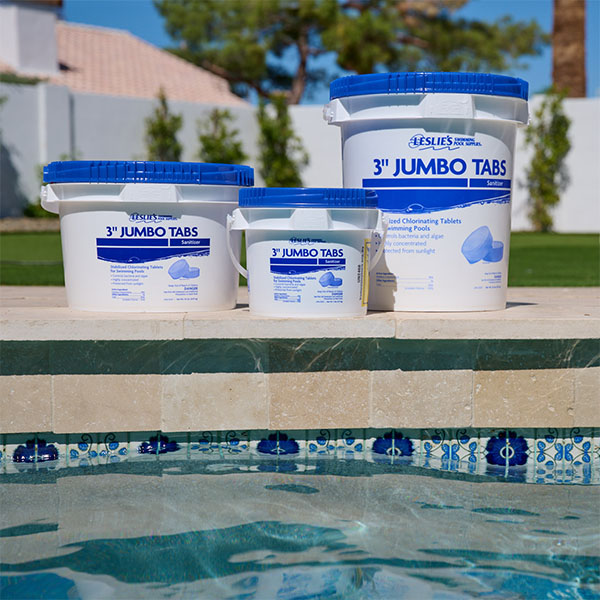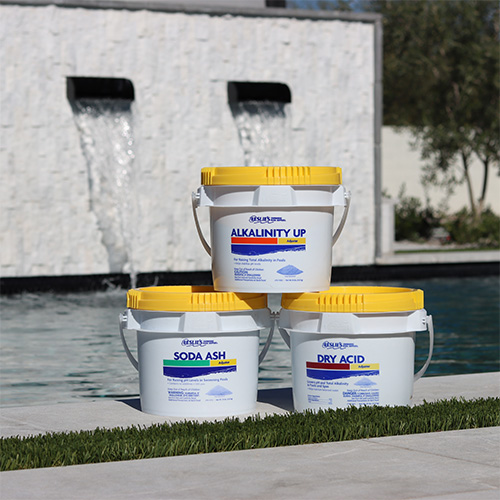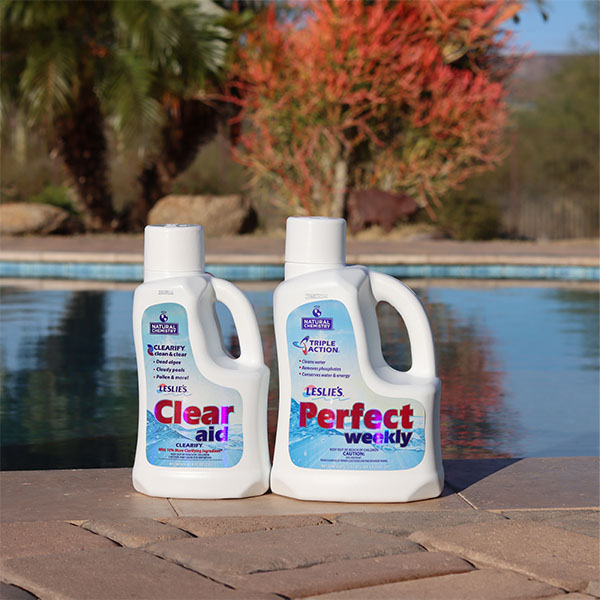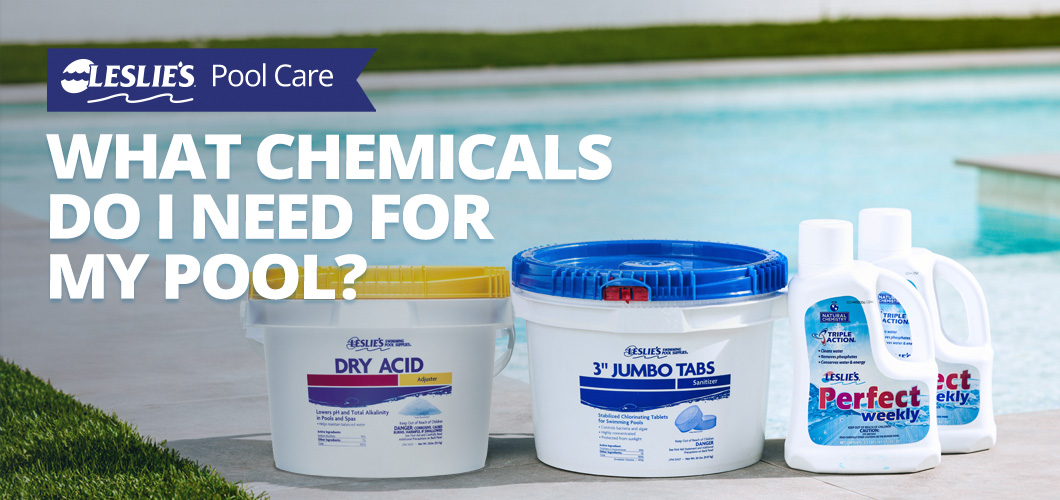
What Chemicals Do I Need for My Pool?
Maintaining the perfect balance of chemicals in your swimming pool can sometimes feel like a complex science experiment. However, with the right knowledge and understanding of pool chemicals, it is simpler than you might think. This comprehensive guide will break down all you need to know about pool water chemicals, helping you maintain a clean, clear, and safe swimming environment.
Introduction to Pool Chemicals
Managing the well-being of your pool requires more than just skimming the surface and brushing the walls. A crucial aspect of pool maintenance involves testing and carefully balancing the water chemistry. Doing so not only ensures a clean and safe environment for swimmers, but also prolongs the life of your pool.
In this article, we'll delve into the three essential chemical categories needed for proper pool maintenance: sanitizers, water balancers, and specialty chemicals.
Sanitizers and Shock
First up are sanitizers and pool shock. Sanitizing involves maintaining a consistent level of chlorine to prevent the growth of bacteria and other. Shocking, on the other hand, involves adding a higher dose of chlorine to quickly raise the chlorine level and eliminate contaminants. Shocking should be done weekly or after heavy pool usage or rainstorms.
Chlorine
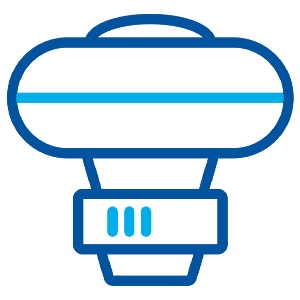
The backbone of pool water maintenance, chlorine plays a crucial role in keeping the water safe and clean. It kills bacteria, viruses, and other microorganisms that cause illness or waterborne diseases. There are three main forms of chlorine: liquid, granular, and tablets.
- Chlorine Tablets: The most common form of chlorine, tablets are a convenient option for pool owners who want a slow, steady release of sanitizer. Tablets sit in an automatic chlorinator or floating dispenser and slowly dissolve, steadily releasing chlorine into the water. This method provides a consistent level of chlorine over a longer period of time, reducing the need for frequent additions.
- Liquid Chlorine: A popular choice for pool owners because it's easy to use and provides instant results. Liquid chlorine has a high concentration of chlorine, so it's important to handle it with care and follow the manufacturer's instructions.
- Chlorine Granules: Granules are easy to measure and dissolve quickly in the water. Granular chlorine is typically added directly to the pool water. It's important to distribute the granules evenly around the pool to ensure proper disinfection.
Regardless of the form of chlorine you choose, it's important to maintain the recommended chlorine level in your pool. The ideal range for Free Available Chlorine is between 1.0 and 4.0 parts per million (ppm). This will ensure that the water remains safe and free from harmful bacteria and other microorganisms.
Pool Shock
Pool shock is a powerful, concentrated form of sanitizer. Shock offers heavy-duty, targeted sanitizing treatments and is typically used after heavy pool use, extreme weather events, or whenever your pool water is exposed to contaminants. Leslie's Power Powder Plus is a fast-acting calcium hypochlorite oxidizer that wipes out algae, bacteria, and other contaminants. It also boosts chlorine levels.
Chlorine-free shock, Leslie's Fresh 'N Clear, dissolves immediately and leaves no residue. This is a huge benefit, as it means you can swim just 15 minutes after administering this type of shock.
Water Balancing Chemicals
Maintaining proper water balance is crucial for the comfort of swimmers and the longevity of pool equipment. Water balancing chemicals help control pH, Total Alkalinity, Calcium Hardness, and Cyanuric Acid levels in the pool water.

pH
pH refers to the acidity or alkalinity of the pool water. The ideal pH range for a swimming pool is typically between 7.2 and 7.6. pH adjusters are used to raise or lower the pH level as needed. To increase the pH in your pool, use Leslie's Soda Ash, and to lower the level, use Leslie's Dry Acid or Muriatic Acid.
Total Alkalinity
Total Alkalinity is a measure of the amount of alkaline substances in your pool water. It also helps buffer pH changes in the pool water, preventing rapid fluctuations in acidity or alkalinity. The recommended range for total alkalinity is typically between 80 and 120 ppm.
To raise the Total Alkalinity in your pool, use Leslie's Alkalinity Up, and Leslie's Dry Acid or Muriatic Acid to decrease the level.
Calcium Hardness
Referring to the total amount of dissolved calcium in your pool water, Calcium Hardness indicates how "hard" or "soft" your pool water is. The ideal range for Calcium Hardness is between 200 and 400 ppm, and can be easily increased with Leslie's Hardness Plus.
Unfortunately, lowering the Calcium Hardness level in your pool is not as easy as raising it. Decreasing pool water Hardness involves partially draining and refilling the pool, about one foot at a time. If you don't have a main drain on your pool, use a submersible pump or a pool cover pump to help you out. For tips on draining your pool safely, check out our blog post, Pool Draining 101.
Specialty Pool Chemicals
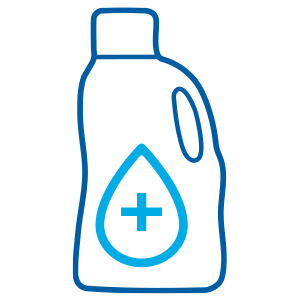
When it comes to preventing algae, clearing cloudy water, or removing phosphates, specialty pool chemicals are a pool owner's best friend. These uniquely-formulated chemicals address specific issues in your pool and add an extra boost when sanitizers and balancers aren't enough.
Algaecides
Algaecides prevent and control algae growth in the pool. They come in various forms, including copper-based, quaternary ammonium compounds (quats), and polyquat-based algaecides. However, it's important to note that algaecides don't eliminate chlorine, they help prevent it. The best way to prevent and destroy algae in your pool is to keep your chlorine level within range, and use an algaecide alongside a weekly dose of pool shock.
Clarifiers & Flocculants
Pool clarifiers help improve water clarity by attracting debris particles and clustering them together, making it easier for the filter to remove them. Leslie's Clear Aid or Ultra Bright Advanced work to keep your pool clear and free of those frustrating floating particles. Similarly, flocculants help clear the water by clumping debris together into heavy clusters that sink to the pool floor. Once these clumps sink, they can be easily vacuumed out of the pool.
Stain & Scale Control
Also known as sequestering agents, these chemicals prevent the formation of stains and scale on pool surfaces and equipment. They work by capturing minerals and other impurities in the water, preventing them from precipitating out and causing damage. Stain and scale inhibitors are added directly to the water and should be used regularly to maintain the desired level of protection.
Enzymes
These natural chemicals help break down organic contaminants in the water, such as oils, lotions, and other debris. They accelerate the natural decomposition process, making it easier for the filtration system to remove these contaminants.
One of the most popular specialty chemicals we recommend is Leslie’s Perfect Weekly, a 3-in-1 phosphate remover, enzyme blend, and liquid solar cover. When used as part of your weekly maintenance routine, it helps prevent algae, reduce chlorine demand, and save you money on water, chemicals, and energy.
The Importance of Water Testing
Regularly testing your pool water is vital to maintaining proper chemistry balance. While test kits and test strips are great for routine testing, nothing beats the accuracy of Leslie's AccuBlue. Just bring a water sample into your local Leslie's for a FREE, 10-point water analysis! This revolutionary system not only precisely measures 10 key water chemistry elements, it also provides a comprehensive, customized treatment plan for your pool.
By maintaining proper water balance, using the right pool chemicals, and regularly testing the water's chemistry, you can enjoy a beautiful and healthy swimming pool. And the best part is you don't have to do it alone! Stop by your local Leslie's, where you'll find everything you need in stock, and at a great price. Plus, our expert store associates are ready to answer any pool care questions you might have.
